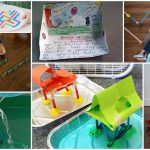Adjusting to college-level academics and thriving independently can challenge many students. By adopting intentional study skills and self-management strategies, you can more effectively learn, retain, and apply information from classroom lectures, readings, and projects. Here we explore research-backed techniques to help you study smart and achieve your academic potential in college courses.
Take Thorough Notes
Lectures introduce a wealth of concepts, examples, connections, and key points. Capturing these through strategic note taking improves encoding and retention. Good note taking tactics include:
- Organize notes by listing topics addressed to provide structure. Leave space to add details under each heading.
- Focus on key ideas instead of transcribing everything said verbatim. Listen for emphasized points.
- Capture definitions of new terminology, technical concepts, important events using bullet points.
- Note real life examples that demonstrate principles, tie to prior knowledge, and deepen understanding through concrete cases.
- Write down visuals like charts, graphs, models and recreate them. These graphics convey essential information.
- Highlight connections the instructor draws between ideas. Link concepts covered previously.
- ** Pose questions** you have and record professor answers to clarify complexities.
Thorough, well organized notes aid reviewing material, studying for exams, completing assignments, and refresh your memory before continuing next class discussions.
Review and Engage Notes
Simply taking notes provides little benefit. Processing them after class boosts comprehension and retention. Useful review techniques include:
- Reread notes closely within 24 hours of class meetings to solidify while fresh.
- Expand details from abbreviated notes while the lecture remains clear.
- Compare notes with other students to fill any gaps.
- Synthesize information across notes from related lessons to see interconnections.
- Test understanding by self quizzing on concepts covered in notes. Explain key ideas aloud.
- Apply concepts practically through example problems or brainstorming real world implications.
- Pose analysis questions that require using ideas from notes to inference answers.
Regular active engagement with notes develops true subject matter mastery.
Read Actively
College courses require reading ample complex textbooks and academic papers. Reading strategically and interacting with texts leads to deeper comprehension. Effective techniques include:
- Preview readings by skimming for structure, key sections, concepts. Form a reading plan.
- Connect to existing knowledge by considering what you already know about the topic. Look for ways ideas fit together.
- Pause periodically to summarize important points and restate concepts in your own words.
- Write notes in margins to capture key terms, emphasize insights, pose questions.
- Relate to class topics by finding links between readings and lecture content to see knowledge building.
- Visualize descriptions by forming mental pictures of processes, events, and concepts. Makes them more memorable.
- Discuss readings with classmates to clarify understanding and reinforce ideas through peer teaching.
Study Concepts, Not Just Facts
Cramming isolated facts from readings and notes provides superficial, short-lived learning. Studying for true conceptual understanding enables applying knowledge flexibly. Some tips include:
- Draw concept maps linking key ideas to visualize relationships.
- Explain concepts thoroughly aloud using clear examples. Teach it to yourself.
- Connect concepts together into a logical knowledge framework.
- Apply concepts through practice problems and hypotheticals.
- Consider theoretical implications underlying concepts for deeper meaning.
- Relate concepts to personal experiences that make material relatable and sticky.
- Compare and contrast related concepts and examples to see nuances.
This emphasis on meaning beyond facts improves retention and ability to think critically.
Maintain Focus While Studying
College students face many distractions from mobile devices to roommates that derail studying. Some ways to maintain focus include:
- Designate study spaces like the library where you can minimize disruptions.
- Block distracting websites and apps using website blockers to manage procrastination.
- Use noise cancelling headphones to immerse in a silent zone.
- Set a timer for 30-50 minute intense study sessions with 5-10 minute breaks between.
- Avoid multitasking by sticking to one task until a break.
- Minimize clutter around your workspace to limit mental distraction.
- Reward yourself after productive study sessions so they feel positive.
Cultivating concentration skills takes practice but allows much deeper, efficient learning.
By applying evidence-based study strategies that work for your learning style, you gain the tools to unlock your academic potential in a college environment with heavy knowledge demands but lots of independence. College studying requires grit, but those who rise to the challenge will gain knowledge and personal skills that pay dividends throughout life.


















